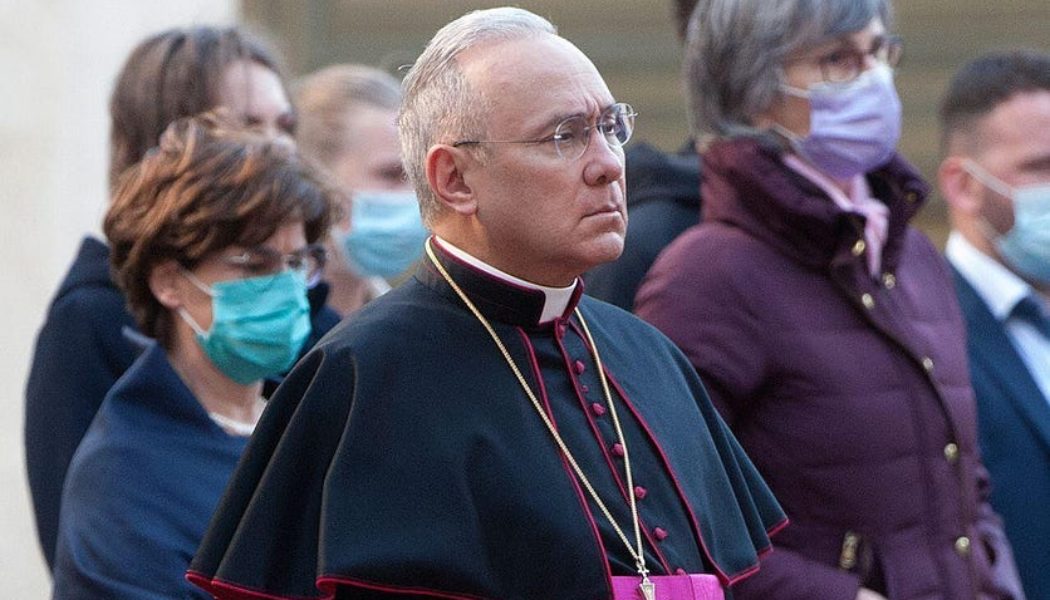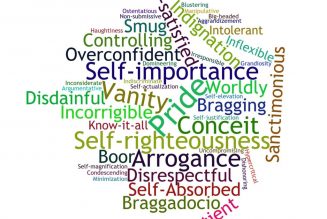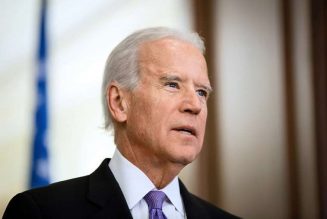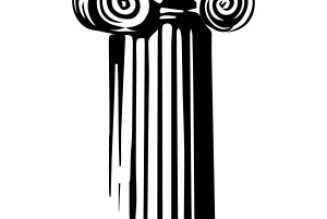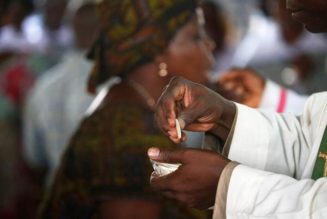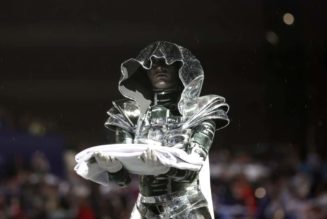The Vatican financial trial in its final recess, before defense attorneys make their closing arguments after the August break and the judges adjourn to consider their verdict.
While the judges and lawyers are (and should be) concerned with the evidence directly related to the sprawling indictment against the 10 accused, the trial has also thrown up testimony which paints the Vatican as a kind of hotbed of spying.
With senior officials, Vatican City police, and a litany of shadowy private contractors all apparently engaged in surveillance and counter surveillance of each other, apparently without remorse, what does that tell us about the state of the rule of law in the Vatican?
—
The Holy See, like any sovereign government, has long maintained a kind of intelligence-gathering operation in and for the Vatican City state.
Indeed, with at least theoretically direct access to clerics and religious spread across the globe, the Church is often said to have one of the best human intelligence networks in the world.
Within the territory of Vatican City, the city state’s gendarmes also run a highly sophisticated security operation, aimed not only at day-to-day safety of pilgrims and tourists streaming through St. Peter’s basilica and the Vatican museums, but also the state security of governing departments under the very real threat of espionage, especially during events like a papal conclave.
But as the current trial has made clear, there is also a parallel intelligence world of the Vatican, with senior officials bringing in outside contractors or diverting Holy See resources for their own use — often against others working in the Holy See.
According to what the trial has revealed so far, all that seems to be happening with relative impunity, with scant regard for its legality, and often in connection with financial misconduct. And, with the exception of a few specific instances tied to alleged embezzlement, none of these actions are the subject of criminal charges — at least for the moment.
While many Vatican watchers have billed the landmark financial crimes trial as a basic test of the city-state’s justice system, the culture of spying brought to light by the trial — but not up for judicial decision — raises real questions about how credible a government the Holy See is running.
—
Vatican City has its own civil governing department, which is meant to oversee the running of the microstate’s territory, including its fire and police services, health care facilities, roads, and businesses like the Vatican museum and duty free shop.
While Pope Francis has recently adopted new laws to more formally distance the running of the city state from the Roman curia, which assists him in the governance of the universal Church, both functions meet under the organizing umbrella of the Secretariat of State.
As the court has heard years of testimony about the secretariat’s financial affairs, though, a picture has emerged of Vatican governance which more closely resembles a tangled wall of ivy than a clear chain of command, with different individuals and offices operating independent of each other — and, it seems, often against each other.
The first big allegation to surface in the course of the current financial scandals came in 2017, with the summary dismissal of the first Vatican auditor general, Libero Milone, who was forced from his job by the then sostituto at the secretariat, now star defendant at trial, Cardinal Angelo Becciu, together with the then head of the Vatican City gendarmes, Domenico Gianni.
Becciu publicly accused Milone of “spying” on the private financial affairs of senior Vatican officials, including himself, a claim Milone has repeatedly denied. Instead, Milone has said, he was merely “following the money” as he attempted to get to grips with his mandate from the pope to overhaul curial finances and end the decades of corruption and scandal which had plagued previous pontificates.
Milone, in turn, has said his office was bugged and his team’s computers and phones put under surveillance — something he flagged Vatican City police, but got no response. At the time of his ouster, he was told he’d been the subject of months of investigation, which he has linked to his own discovery of financial misconduct and abuse of office by Giani himself.
The police chief later resigned for unrelated reasons.
Whatever the motives for the investigation into Milone, Becciu and Giani did at least claim the fig leaf of an official police action against the auditor and his team, even if it was personally motivated and, as Milone is contending in an ongoing lawsuit, an abuse of power.
But Beeciu’s use of personal intelligence networks and spies goes well beyond that single case, and long after he left his post as sostituto, most notably including his relationship with Cecilia Marogna, the self-styled geopolitical analyst and private agent for the cardinal.
Marogna, together with Becciu, has claimed she worked for the cardinal in a secret, papally-approved, off-books operation to negotiate the release of a kidnapped religious sister in Mali.
Those claims have been rejected both by Italian intelligence authorities and by Pope Francis, but even if they were true, Marogna has also said she worked for Becciu to compile “dossiers” on the private moral failings of senior Vatican officials — work for which neither she nor the cardinal have offered a legal justification.
And it’s worth noting that when Interpol flagged Becciu’s payments to Margona, Vatican City police went directly to the cardinal about it and he offered to write a cheque for more than half a million euros if they would keep the matter quiet.
Becciu has himself, in the course of the trial, also been found to have arranged secret recordings of the pope himself discussing state secrets — an apparently obvious crime under Vatican City national security laws passed by Francis, though one for which the cardinal has yet to be charged.
—
While Becciu’s pattern of private espionage paints a grim picture on its own, the real problem for the Vatican is that as the trial has progressed his conduct increasingly appears to be the norm, not the actions of a rogue individual.
The cardinal’s successor as sostituto, Archbishop Edgar Peña Para, who is not on trial, seems to have followed closely in his predecessor’s footsteps.
As most people now know, the investigation which led to the current trial began when the leadership of the IOR, Vatican City’s only commercial bank, complained about a loan application from the Secretariat of State, asking for 150 million euros to refinance a mortgage on the famous London building at 60 Sloane Ave.
As part of their investigation, Vatican prosecutors wanted to put officials at the secretariat under electronic surveillance, but couldn’t legally do so unless they had a signed judicial warrant — one which in the end the pope had to approve personally.
That Francis had to personally OK the surveillance gives some idea of the legal scrutiny and formality which Vatican City law requires for these matters. Yet, while the prosecutors needed to get the pope’s personal say-so, in writing, the sostituto, Archbishop Peña Parra, was playing by a different set of rules.
Enraged by the IOR’s rejection of the loan application, his own officials have testified, Peña Parra ordered an expressly retaliatory investigation and electronic surveillance on the bank’s director, Gianfranco Mammì.
The same businessman told the judges that he was also asked by Peña Parra’s secretary Msgr. Mauro Carlino (also on trial) to help arrange electronic surveillance in the offices of another of the middlemen involved in the London deal.
The archbishop then had them back to discuss hiring them to conduct “reconnaissance” for him on other individuals.
—
The allegations that Peña Parra engaged outside contractors to shield him from possible internal investigation and to arrange retaliatory, extra-legal, electronic surveillance of other officials would appear to be very serious, especially given the criminal charges against his predecessor and the Secretariat of State’s desire to distance itself from the appearance of institutional corruption.
But rather than deny the allegations, or present an excuse for acting outside the law, the current sostituto instead told judges in March of this year that not only had he done it, he would “do it again” if he thought it necessary.
Despite both the current and former sostitutos having now admitted in court to all manner of violations of Vatican state security laws — everything from contracting agents of foreign governments, to circumventing judicial oversight of surveillance activity, to secretly recording the pope — no action has been taken, and no charges filed.
In Becciu’s case, it is possible the prosecution feel they have enough on the charge sheet against the cardinal already, and the current trial should be allowed to play out before any decision is made about adding new charges.
The same might be the case for the litany of other secretariat officials caught up in the prosecution’s indictment, including figures like Msgr. Mauro Carlino — who worked for both Becciu and Peña Parra.
But the uncomfortable reality is that the current trial has laid bare a culture of private spies, illegal wiretaps, and casual disregard for the rule of law at the very top of the Vatican power structure.
In response, no charges have been filed — instead, the current second-highest ranking curial official has openly admitted to what many outsiders will see as an egregious abuse of office, and insisted he would do it all again in the future.
If prosecutors can secure convictions in the coming months, especially against Cardinal Becciu, some will hold out the result as proof that reform and accountability have finally come to the Vatican.
But so long as officials like Peña Parra can boast of flouting the law and pursuing their own private intelligence operations, others will conclude nothing has actually changed in the Vatican.
What does seem clear for the moment is that the same culture of private agendas and parallel power structures that created the current scandal remains intact. As long as that continues, history seems likely to repeat itself.
Comments 19
Services Marketplace – Listings, Bookings & Reviews
